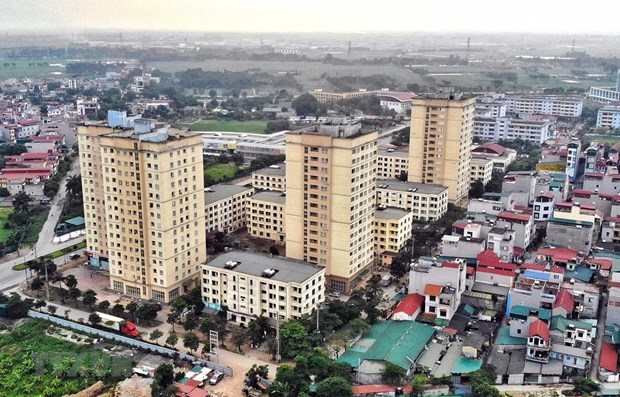 |
|
|
According to the latest quarterly report on the domestic housing and real estate market from the Ministry of Construction, real estate business and investment have both been hard hit by the pandemic.
The market posted 13,042 successful transactions for various types of property in the first three months of the year, ranging from apartments, houses, and land to condotels and resorts/villas, accounting for 14 percent of all existing units - the lowest in the past four years.
The figure marked a decline of 60 percent against the same period last year, according to the report.
However, Director of the Ministry’s Housing and Real Estate Market Management Department Nguyen Trong Ninh affirmed that the market has not become frozen but has actually developed quite stably.
Despite the COVID-19 pandemic, prices of resort real estate remained stable while slight increases were seen in the housing segment.
In Hanoi, the average apartment price rose 1.02 percent year-on-year in the first four months, while in HCM City it rose 3.5 percent.
Le Hoang Chau, President of the HCM City Real Estate Association, said the market is exhibiting good “resistance”.
Demand for housing, he went on, remains high, so the market could recover rapidly after the coronavirus is defeated.
Su Ngoc Khuong, Senior Director of Savills Vietnam, pointed to several positive signs speeding up market recovery.
The Government has recently issued a number of preferential policies dedicated to disease-affected enterprises, together with resolutions requiring the cutting of administrative procedures and the speeding up of investment disbursement.
These will help boost the recovery of Vietnamese businesses, he said, including those operating in real estate.
Vietnam has also been confirmed as a safe and friendly destination for foreign investors, he added.
Stephen Wyatt, Country Head of JLL Vietnam, said that positive economic growth, a stable political situation, and a transparent legal framework are advantages for Vietnam./.VNA
 The slowdown in 2019 and the arrival of the COVID-19 pandemic in the opening months of 2020 saw Vietnam’s property market hit “double trouble”, but experts have said the possibility of a quick recovery remains.
The slowdown in 2019 and the arrival of the COVID-19 pandemic in the opening months of 2020 saw Vietnam’s property market hit “double trouble”, but experts have said the possibility of a quick recovery remains.